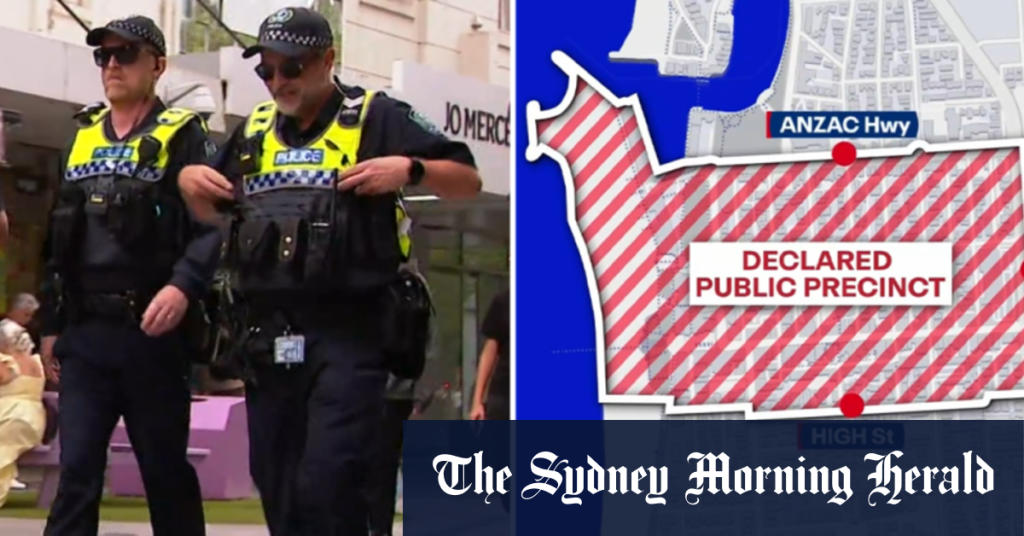Glenelg Crime Crackdown: Enhanced Police Powers for Peak Season
Glenelg, a popular beachside destination in Adelaide, Australia, is experiencing a surge in crime during peak tourist seasons, prompting authorities to implement stricter measures to ensure public safety. To address this growing concern, police have been granted expanded powers to bolster surveillance and actively combat criminal activities within the Glenelg precinct. These new powers aim to deter potential offenders, swiftly respond to incidents, and foster a safer environment for residents and visitors alike. The decision to implement these measures follows a detailed review of crime statistics and community feedback, which highlighted an increasing trend in antisocial behavior and criminal acts, particularly during peak season when tourist numbers swell.
The Nature of Enhanced Police Powers:
The specific nature of the enhanced powers remains somewhat ambiguous based on the limited information provided. However, it’s reasonable to infer that these powers may encompass several key aspects of law enforcement. Increased surveillance likely includes the deployment of additional CCTV cameras, both fixed and mobile, to monitor public spaces and identify potential threats. This heightened surveillance can act as a deterrent to criminal activity and provide vital evidence for investigations. The powers may also include increased stop and search capabilities, allowing police officers to proactively engage individuals suspected of involvement in criminal activity. This can help prevent crimes before they occur and apprehend offenders more efficiently. Greater flexibility in enforcing public order offenses is another likely component, enabling police to address issues like public intoxication, disorderly conduct, and other behaviors that disrupt community peace and safety. Finally, the enhanced powers may entail simplified procedures for establishing designated public safety zones, allowing police to implement temporary restrictions or heightened security measures in specific areas during special events or periods of heightened risk.
Rationale Behind the Increased Powers:
The decision to grant police enhanced powers stems directly from a concerning rise in crime rates within Glenelg, specifically during peak tourist seasons. This influx of visitors, while beneficial for the local economy, unfortunately presents opportunities for criminal activities like theft, assault, and drug-related offenses. The higher concentration of people in public spaces can make it easier for offenders to operate undetected and creates a greater potential for conflict and disorder. Furthermore, the festive atmosphere associated with peak season, often involving increased alcohol consumption, can contribute to a rise in impulsive and antisocial behavior. Local businesses and residents have been vocal about the negative impact of this crime surge on their sense of security and the reputation of Glenelg as a safe and enjoyable destination. By empowering police with enhanced capabilities, authorities aim to address these concerns, create a more secure environment, and maintain public confidence in the area’s safety.
Potential Benefits and Concerns:
The enhanced police powers, while intended to improve safety and reduce crime, present both potential benefits and drawbacks. On the positive side, increased surveillance and proactive policing can deter criminal activity, leading to a decrease in crime rates. The ability to quickly respond to incidents and apprehend offenders more efficiently can enhance community safety and restore confidence among residents and visitors. The added security measures can also contribute to a more pleasant and enjoyable experience for those visiting Glenelg during peak season. However, concerns exist regarding potential infringements on civil liberties. Increased stop and search powers, if not exercised judiciously, can lead to discriminatory practices and target specific demographics unfairly. Expanded surveillance can raise privacy concerns, particularly if the scope of data collection and retention is not clearly defined and regulated. Maintaining a balance between public safety and individual rights is crucial to ensuring the responsible and effective implementation of these enhanced powers.
Community Response and Future Implications:
The community response to the enhanced police powers is likely to be mixed. While many residents and businesses will welcome the increased security measures, others may express concerns about the potential impact on civil liberties and privacy. Open communication and transparency from law enforcement are essential to address these concerns and build public trust. Regular updates on the effectiveness of the measures and their impact on crime rates are crucial for evaluating their success and making necessary adjustments. The future implications of these enhanced powers will depend on how they are implemented and monitored. If they prove successful in reducing crime and improving public safety without unduly infringing on individual rights, they could become a model for other areas experiencing similar challenges. However, if concerns about civil liberties are realized, it could lead to calls for greater oversight and potential revisions to the scope of these powers.
Conclusion: Striking a Balance between Safety and Liberty:
The decision to grant police enhanced powers in Glenelg reflects a serious effort to address the rising crime rates during peak season. The intention is to create a safer environment for residents and visitors, enhance public confidence, and maintain the area’s reputation as a desirable destination. However, it’s crucial to strike a balance between public safety and individual rights. Careful monitoring, transparency, and community engagement are essential to ensure that these enhanced powers are used responsibly and effectively, ultimately achieving the desired outcome of a safer and more secure Glenelg for all. The long-term success of this initiative will depend on continuous evaluation, community feedback, and a commitment to upholding the principles of fairness and justice while protecting public safety.










